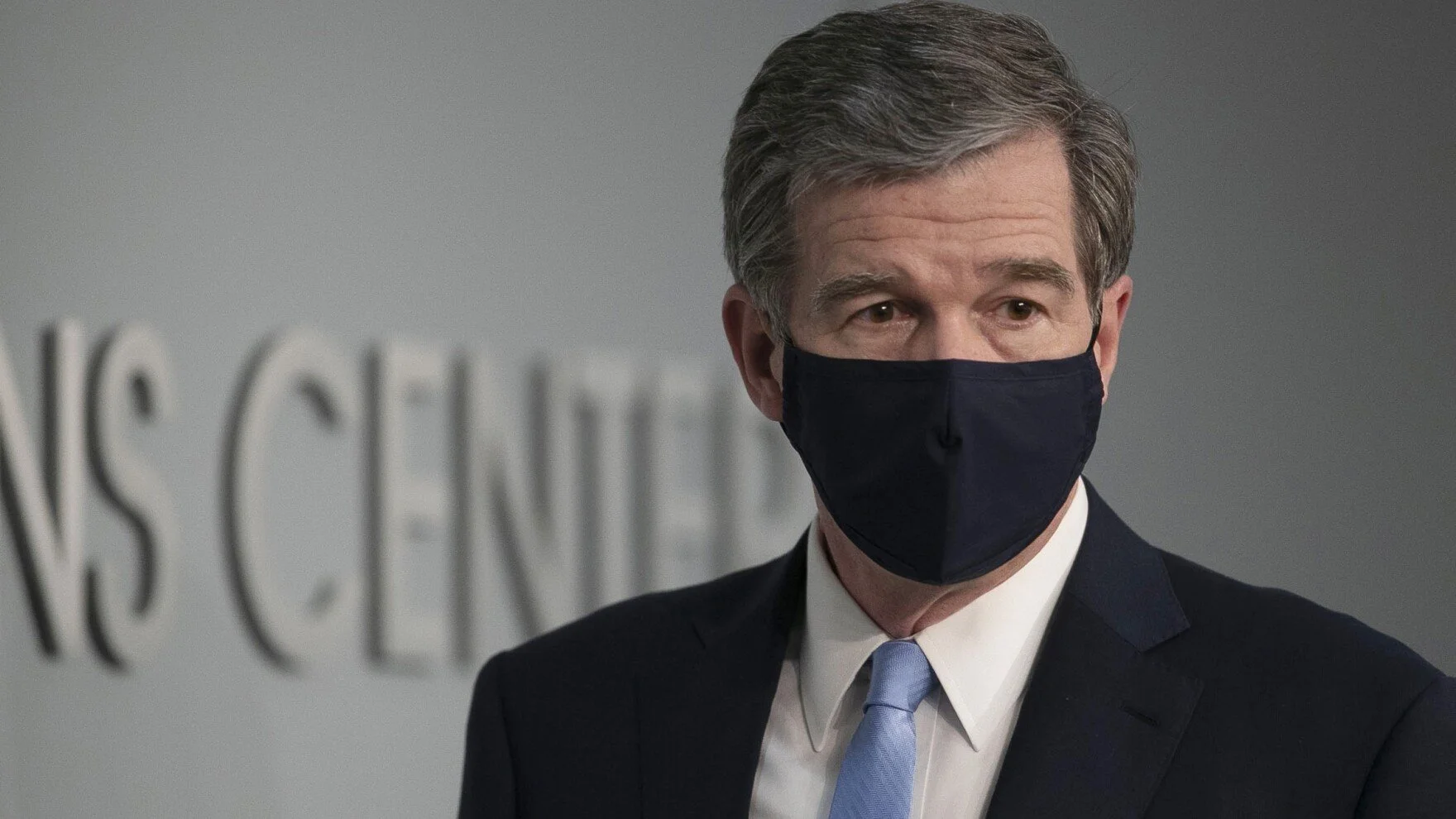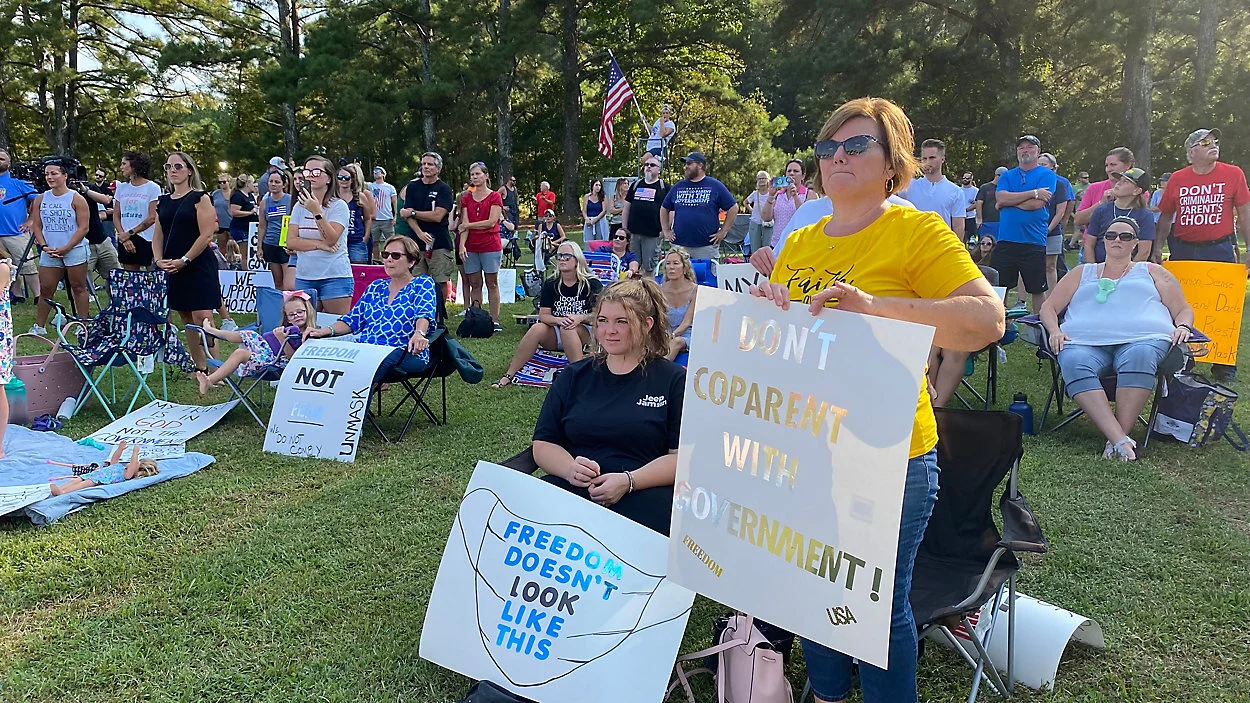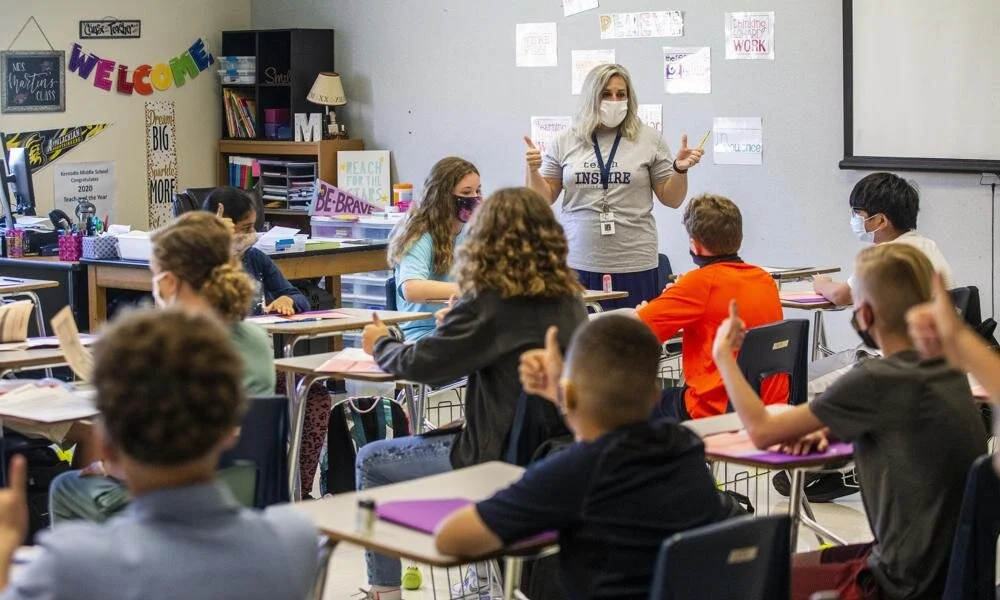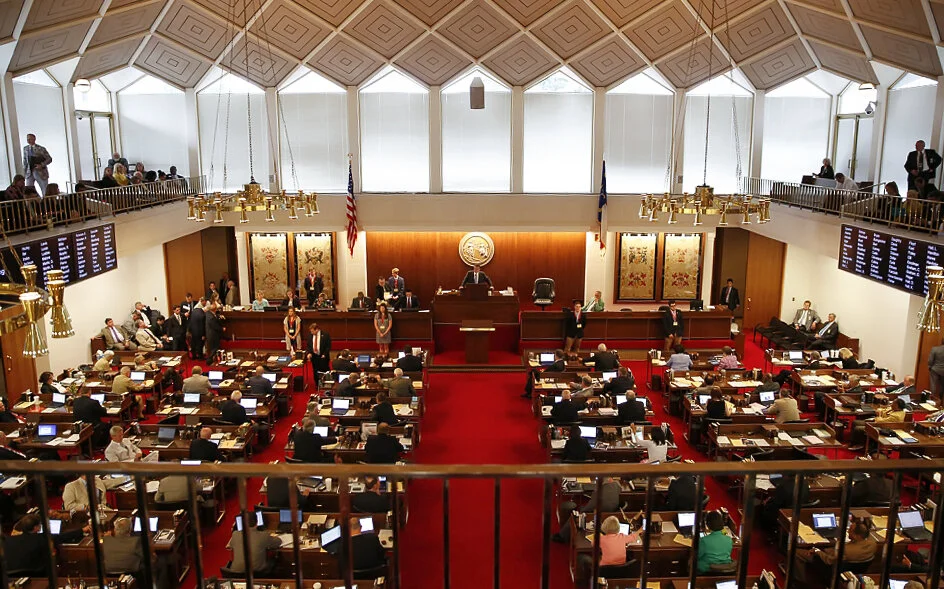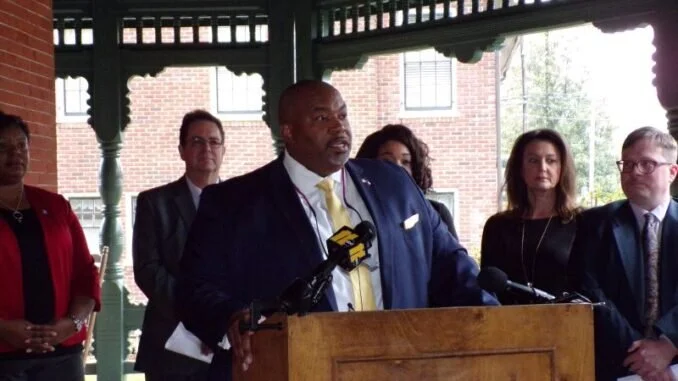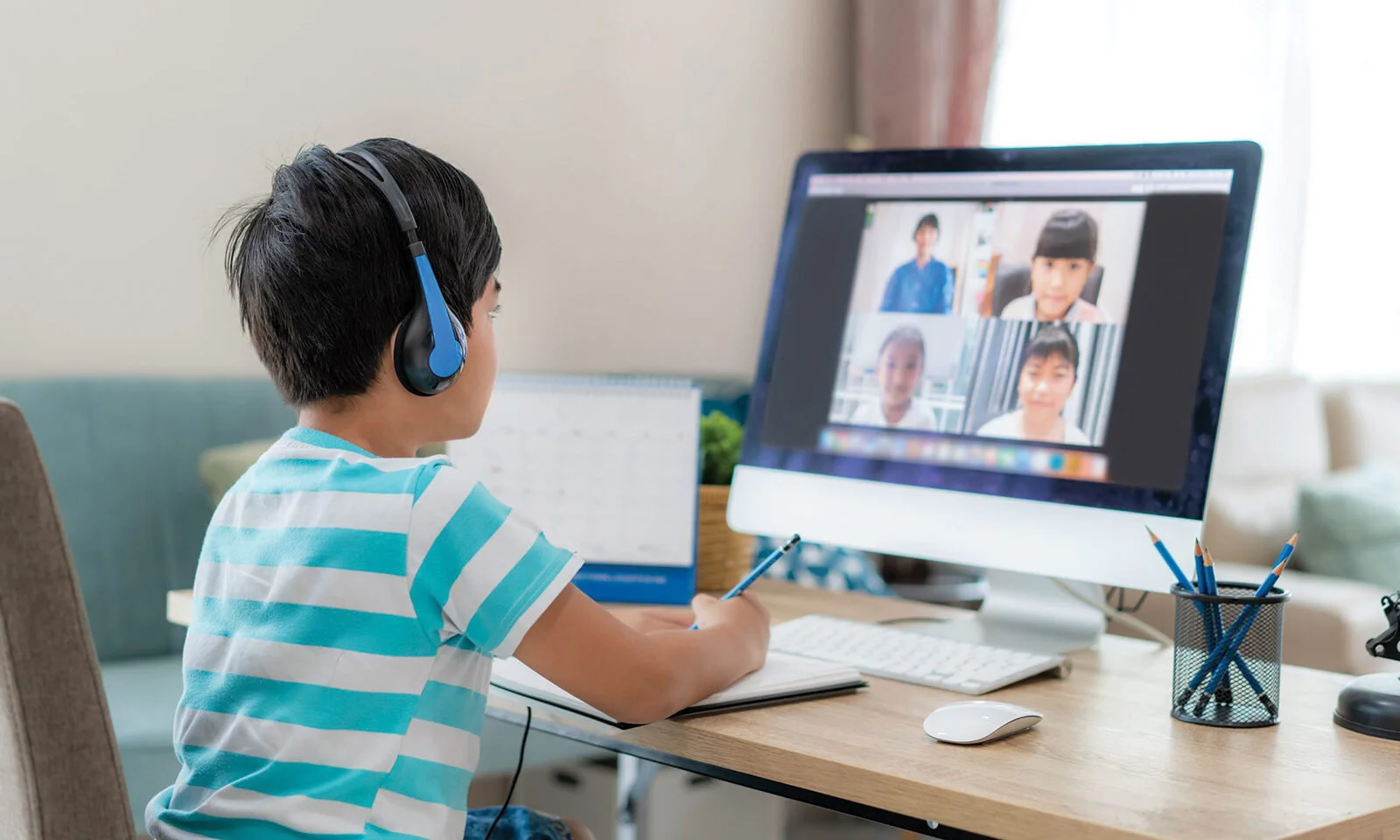One of the most polarizing races on North Carolina’s ballot this year is the fight for Superintendent of Public Instruction, the chief administrative officer for the state’s public school system. Mo Green, the Democratic candidate, is the former Superintendent of Guilford County Schools. Michele Morrow, the Republican nominee, is a registered nurse from Cary who homeschooled her children, running on a platform of parental rights, a reorganization of educational institutions and funding, and opposition to critical race theory.
Read MoreViolations of the Clery Act have repercussions that exist beyond simply having the school pay a fine. Students were not notified of potential threats near the area because many reports were swept under the rug and people affiliated with the university who made allegations were not given the proper support.
Read More“Governor Ron DeSantis of Florida is facing backlash as he continues to stand by his decision to ban an AP course on African American studies for schools in Florida. It began when DeSantis made his initial announcement of the ban in mid-January with a letter from the state education department to the College Board. This is just the most recent effort by DeSantis to limit the teaching of race in the Florida school system, despite the objection of numerous groups.”
Read More“During his time as governor, Desantis has arguably become the most influential champion of the“anti-woke” agenda . . . . Desantis and others often paint children as particularly vulnerable to unjust indoctrination. They fear schools may be introducing complex topics such as sexuality and race to children who are too young to understand the complexities of these matters. Teaching children that “they can be whatever they want to be” could be particularly dangerous to undeveloped children, argued Desantis at his signing of the legislation.”
Read More“Many states with Republican governors have already ended the mask mandates and now some states with Democrat governors are following suit. There is evidence supporting claims that masks are not effective for young children and therefore there is no need for them. Additionally, there is evidence that shows that masks have harmed children in both educational and social development. Due to this impact, states are having to reevaluate the cost of wearing masks and if the benefits of masks outweigh the educational and social development of children.”
Read More“As midterms loom closer, President Biden is facing considerable pressure to relieve student debt, so Democrats can gain more political favor at the polls. Though the White House remains elusive on what the President will do to follow up on his campaign rhetoric, it is clear that the Biden Administration is coming up short on their promise to alleviate the Student Debt Crisis.”
Read More“Education will likely be a potent issue in the leadup to the midterm elections, but the recall in San Francisco was less concerned with alleged culture war items such as critical race theory. Instead, the election focused on government competence and fostering a better educational atmosphere for children.”
Read More“Two weeks ago, Governor Roy Cooper announced that North Carolina’s more than 80,000 state employees will have the opportunity to use paid leave to staff public schools in the state. What is the problem in NC schools?”
Read More“Kids are only in school once, and these beginning years are formative in them becoming capable and functioning adults. In fact, the education that staffing shortages are robbing kids of is considered so fundamental that the North Carolina Constitution recognizes that "the people have a right to the privilege of education.”
Read More“Overall, while North Carolinians may agree that public education is lacking in the state, there still is much debate to be had surrounding the funding of improvements.”
Read More“The dispute currently playing out is no isolated incident, but rather the most recent episode in a decades-long fight against a discriminatory system that speaks to broader questions about who bears the burden of ecological crises and the fight against climate change.”
Read More“The monthly debates, although contentious, allow each side to ensure that their voices are heard on this highly controversial issue. It also allows the current policy to be continually tested to show its strengths and weaknesses, allowing the board members and parents to weigh each side.”
Read More“Cooper’s claim that the bill [regarding protests] is an attempt to deter people from exercising their constitutional rights is highlighted by the timing of the bill’s introduction during a wave of protests in which many of the participants were African-American, alongside the fact that Republicans have passed legislation considered discriminatory against African-Americans before.”
Read More“A debate rages over a program that has distributed over $750,000 in state funds to help low-income families afford private school tuition — North Carolina Opportunity Scholarships. In the 2020-2021 school year, 456 private schools received money from Opportunity Scholarships, with 12,284 families receiving scholarships. Opponents of Opportunity Scholarships argue it is wrong to take public funding and invest it into private schools largely unaccountable to the state.”
Read More“The fractious national debate about COVID-19 has perhaps been most divisive on issues related to schools and education. In North Carolina, however, this debate was surprisingly tame.”
Read More“Private school vouchers are a form of state-funded financial aid for K-12 students. In North Carolina, families of low-income students and students with disabilities can apply for private school vouchers. If granted, the vouchers use public funding to offset much of the tuition and fees charged by private schools.”
Read More“As many state legislatures across the U.S. have introduced “school choice” bills to divert public education funding to private schools, the North Carolina General Assembly has joined the fray. Republicans in the North Carolina State House of Representatives introduced HB 32 during the first week of the legislative session in January. Last week, on April 1st, the bill moved to the Committee on Rules, Calendar, and Operations of the House, as it progresses through the governmental process on its way to a vote on the House floor. What exactly is included in this bill and what is its intended consequence for both public and private schools?”
Read More“On March 30th, the Senate passed the Excellent Public Schools Act. Though Democrats offered some criticism during a rare questioning period held by Sen. Berger, most lawmakers expressed support for the bill and the vote was unanimous. Sen. Gladys Robinson, D-Guilford, pointed out that COVID-19 has only lowered literacy rates and has ‘left behind’ a number of students who may lack technology, parental support, or other resources crucial to staying afloat during remote learning. Robinson argued that ‘The ability to read is the background, the foundation of everything.’”
Read More“In one of his first official acts as Lieutenant Governor, Mark Robinson has formed a new committee, “Fairness and Accountability in the Classroom for Teachers and Students” (F.A.C.T.S.). This committee is dedicated to giving students, parents, and school faculty “a voice to speak out about cases of bias, inappropriate materials, and indoctrination they see or experience in schools.”
Read More“While this year may represent a loss of traditional learning, it also represents a year of persistence and growth despite circumstance. Learning did not stop because of the pandemic and not every lesson taught has been negative.”
Read More




